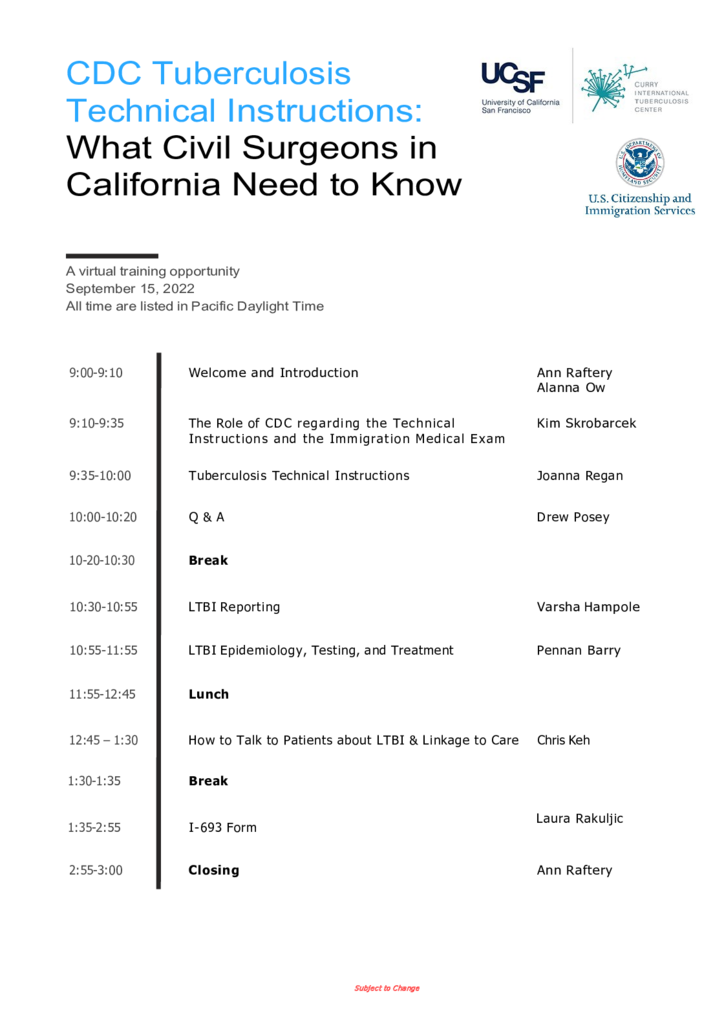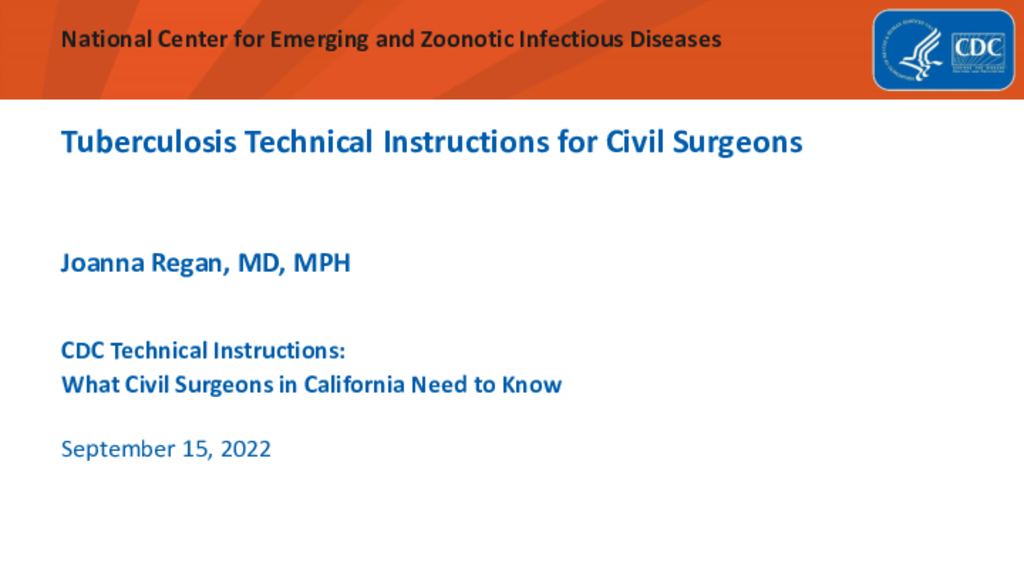Technical Instructions For Civil Surgeons: A Comprehensive Guide
As a civil surgeon, mastering technical instructions is crucial for delivering accurate and reliable medical evaluations. The role of civil surgeons extends beyond traditional medical practice, requiring a unique set of skills and knowledge to meet specific immigration requirements. Whether you're new to the field or looking to refine your expertise, this guide will provide you with essential insights into the technical aspects of civil surgery.
In today's regulatory environment, civil surgeons play a pivotal role in the immigration process by conducting medical examinations that comply with strict guidelines. These examinations are not only essential for ensuring public health but also for maintaining the integrity of immigration systems worldwide. This article delves into the technical instructions civil surgeons must follow to perform their duties effectively and efficiently.
By exploring the intricacies of civil surgeon responsibilities, relevant regulations, and best practices, we aim to equip you with the tools necessary to excel in your profession. Whether you're a seasoned practitioner or a newcomer, understanding the technical instructions for civil surgeons can significantly enhance your ability to contribute positively to the field.
Read also:Caltech Baseball A Deep Dive Into The World Of Science Meets Sports
Daftar Isi
- Biography of a Civil Surgeon
- Role and Responsibilities of Civil Surgeons
- Technical Instructions for Civil Surgeons
- Regulations and Compliance
- Tools and Resources for Civil Surgeons
- Common Challenges Faced by Civil Surgeons
- Best Practices in Civil Surgery
- Training and Certification Requirements
- Future Trends in Civil Surgery
- Conclusion
Biography of a Civil Surgeon
Overview of a Civil Surgeon's Career
A civil surgeon is a licensed medical professional authorized by immigration authorities to conduct medical examinations for individuals applying for U.S. immigration benefits. These examinations are designed to ensure that applicants meet health-related requirements for entry into the United States. Below is a brief overview of a typical civil surgeon's career path:
Data Pribadi dan Biodata
| Parameter | Details |
|---|---|
| Name | Dr. John Doe |
| Specialization | Internal Medicine |
| Years of Experience | 15 years |
| Designation | Civil Surgeon |
| Certifications | Board Certified in Internal Medicine |
Role and Responsibilities of Civil Surgeons
Civil surgeons have a unique role in the immigration process, focusing on health assessments that align with legal requirements. Their responsibilities include:
- Conducting thorough medical examinations for immigration applicants.
- Ensuring compliance with U.S. Citizenship and Immigration Services (USCIS) guidelines.
- Providing documentation that supports immigration applications.
Technical Instructions for Civil Surgeons
Key Components of Technical Instructions
Technical instructions for civil surgeons encompass a wide range of procedural guidelines. These include:
- Proper documentation of medical findings.
- Adherence to vaccination protocols.
- Accurate reporting of communicable diseases.
According to the Centers for Disease Control and Prevention (CDC), civil surgeons must follow specific procedures to identify and report conditions such as tuberculosis and other infectious diseases. This ensures that public health standards are maintained.
Regulations and Compliance
Importance of Compliance
Compliance with regulations is paramount for civil surgeons. Failure to adhere to these guidelines can result in legal consequences and jeopardize an applicant's immigration status. Key regulations include:
- Form I-693: Report of Medical Examination and Vaccination Record.
- Adherence to the CDC Technical Instructions for Civil Surgeons.
- Regular updates on vaccination requirements.
Staying informed about regulatory changes is essential for civil surgeons to maintain their effectiveness in the field.
Read also:Unveiling The Secrets Of Main Ivy A Comprehensive Guide
Tools and Resources for Civil Surgeons
Essential Tools for Civil Surgeons
To perform their duties effectively, civil surgeons rely on a variety of tools and resources:
- Medical examination kits tailored for immigration assessments.
- Access to the latest CDC guidelines and updates.
- Software for electronic documentation and record-keeping.
These tools not only streamline the examination process but also enhance the accuracy and reliability of medical evaluations.
Common Challenges Faced by Civil Surgeons
Addressing Challenges in Civil Surgery
Civil surgeons encounter various challenges in their practice, including:
- Interpreting complex medical conditions in diverse populations.
- Managing cultural and language barriers during examinations.
- Keeping up with evolving regulatory requirements.
By developing strategies to address these challenges, civil surgeons can improve the quality of their services and contribute more effectively to the immigration process.
Best Practices in Civil Surgery
Implementing Best Practices
Adopting best practices is crucial for civil surgeons to deliver high-quality care. Some recommended practices include:
- Engaging in continuous professional development.
- Utilizing technology to enhance documentation accuracy.
- Building strong relationships with immigration authorities.
By following these best practices, civil surgeons can enhance their expertise and build trust with both applicants and regulatory bodies.
Training and Certification Requirements
Path to Becoming a Certified Civil Surgeon
Becoming a certified civil surgeon requires meeting specific training and certification requirements. These include:
- Completion of accredited medical education and residency programs.
- Licensing as a medical professional in the United States.
- Successful application and approval by USCIS to serve as a civil surgeon.
Continuous education and staying updated with the latest medical advancements are also essential for maintaining certification.
Future Trends in Civil Surgery
Emerging Trends in the Field
The field of civil surgery is evolving, with new trends shaping the future of practice:
- Increased use of telemedicine for remote consultations.
- Integration of artificial intelligence for data analysis.
- Focus on patient-centered care and cultural competence.
By embracing these trends, civil surgeons can enhance their capabilities and better serve the needs of immigration applicants.
Conclusion
In conclusion, mastering technical instructions for civil surgeons is essential for delivering high-quality medical evaluations in the immigration process. This guide has covered key aspects such as roles, responsibilities, regulations, and best practices to help civil surgeons excel in their profession. By staying informed, adapting to new trends, and adhering to guidelines, civil surgeons can make a significant impact on public health and the integrity of immigration systems.
We encourage you to share your thoughts and experiences in the comments section below. Additionally, feel free to explore other articles on our site for more insights into the world of civil surgery and related fields.



